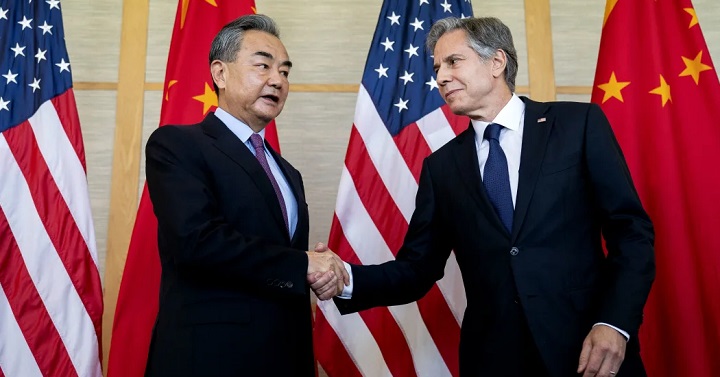
Despite the ongoing two wars, in Ukraine and Israel, disrupting global stability, the forthcoming meeting between the US and Chinese presidents Joseph Biden and Xi Jinping in San Francisco could be, in retrospect, the political highlight of the year. Whatever their talking points, a set of unspoken and unspeakable bilateral concerns will hang over their heads. They are the deep reasons why ties are souring. Still, neither side apparently has the patience or confidence to talk about them and solve them through dialogue because they believe the other side will not relent or they can become an existential threat to one’s survival.
Here is a brief list of the main points.
US concerns and complaints about China
- China has a closed internal market, and its currency is not fully convertible. That creates very uneven and unfair market competition.
- China is not democratic. Its political decisions are not transparent. It contrasts with American ideals and creates many problems in bilateral relations.
- Power rivalry. China is building a power rivaling the United States; thus, the US wants to keep its place.
- Neighbors’ fears. Practically all of China’s neighbors are worried and chafe under the growing power of Beijing. They complain about the US, their old ally since the end of World War II, and the US feels obligated to do what it can to help them.
- China’s claim over the South China Sea – a chokehold on global trade, against the claims of all neighboring countries – is considered an expansionist move. Also, China’s unwillingness to give up the use of force to reunify Taiwan threatens the island’s future, de facto independent, although de jure part of “one China,” without clarifying what “one China” is.
- Military rise. China is catching up in the military gap with the US, and if unchecked, it could reach the American level in a few years and outpace it. This is a threat to the US; it would shake its position in the world, also because it is uncertain how China will use its new might. The US wants to use its military power to protect itself, its allies, and the world order. China’s might could be used to change the present world order.
- Chinese technology is catching up with America’s. It is used to gain the upper hand in many military fields and crowd out, thanks to dumping, competitive non-Chinese technologies.
Chinese concerns and complaints about the US
- Market denial. China complains that the US is cutting access to technologies and progressively pushing out Chinese trade, impacting economic growth.
- Geopolitical encroachment. China laments the US active surveillance presence in what it deems its regional space and its national waters. It feels it is provocative.
- Neighbors and Taiwan. China believes that its troubles with its neighbors and with Taiwan exist only because the US fans them. Without the US presence, Taiwan would be easily reunited with China, and the neighbors would accept China’s regional predominant role, similar, it feels, to the role the US has in the American continent.
- Interference in internal affairs. China complains the US is stirring troubles domestically by supporting political dissidents and pro-independence movements in the restive regions of Xinjiang and Tibet. Therefore, the US is jeopardizing China’s domestic stability and political unity.
- Political antagonism. China complains the US is trying to force its political and economic system onto China, and Beijing claims it has the right to decide independently what politics and economics are fit for the country without American interference.
- Diverging international agendas. Following all these elements, China is progressively developing foreign politics that are not in line with, and sometimes contrasting, those of the US and trying to shape a political space outside the US orbit. This effort creates new friction with the US.
The ongoing competition is the result of the clash of complaints. Because of the size and the reach of the two countries, it all has worldwide repercussions.
At the end of it, whenever it may be, if the US wins, there will be a more US-centered world. It will be roughly similar to now but with more emphasis on the US.
If China wins, it will be a China-centered world. It could be very different from now, and nobody knows what it will be.
China claims it is doing the same as the US has been doing – trying to run the world from its capital. But politically and economically, the two countries are very different. The US is liberal; China is authoritarian.
Then, the competition boils down to ideological systems with some more elements. The US is a meddling democracy, getting into the domestic politics of different countries. China is a non-meddling autocracy. It is happy to deal with whatever system as long as the local leaders play ball with China.
The two different approaches create different reactions. Many countries, although democratic, became sympathetic to China for its neutrality on local systems, whereas they felt bullied by the US. Conversely, many of China’s neighbors are hostile to China because they feel bullied by China’s presence. It is unclear whether either perception will change as China grows stronger.
Also, countries and people unhappy with the present status quo will side with China, whereas people and states worried about changes will side with the US.
***
Both countries at the moment have specular approaches to the present situation. They want to wait it out because they feel the other system isn’t working and will collapse. In the meantime, they prepare for war because things could go wrong, and internal pressures could be fixed with an external conflict.
They will also be expanding their rival trade-technology footprints. China is trying to push into other countries. The US is building and tightening its web of military and commercial alliances worldwide.
***
Here, the Middle East and the Muslim world now are crucial. If Israel is going to win the war in a reasonably short time, Iran – a primary adversary of the US and a crucial Chinese partner in the region – could become pretty isolated. The US would score a significant regional win, and China would not.
Vladimir Putin’s Russia, bogged down in an unwinnable war in Ukraine, is catching its breath as the world is distracted with the Middle East. Even after the end of the military clashes, Israel will have to consolidate the victory politically, and this will draw both Israeli and Western attention to the region for some time and away from Russia and Ukraine.
In the long run, it could create more pressure on Russia, but it is better for Putin in the short run.
China can navigate the politics better, but it will be economically more difficult, as I argued elsewhere[1].
In this situation, no one can expect a sunny day in the short run. Although a significant US-China storm has been averted for some time, short of a freak incident, many blows below the belt can be expected by either side. Still, one hopes the Biden-Xi summit will check the spin of bilateral tensions. From there, there might be a glimmer of hope to untangle the Gordian knot.
[1] See http://www.settimananews.it/informazione-internazionale/china-political-and-economic-contradictory-pulls-with-the-middle-east/





